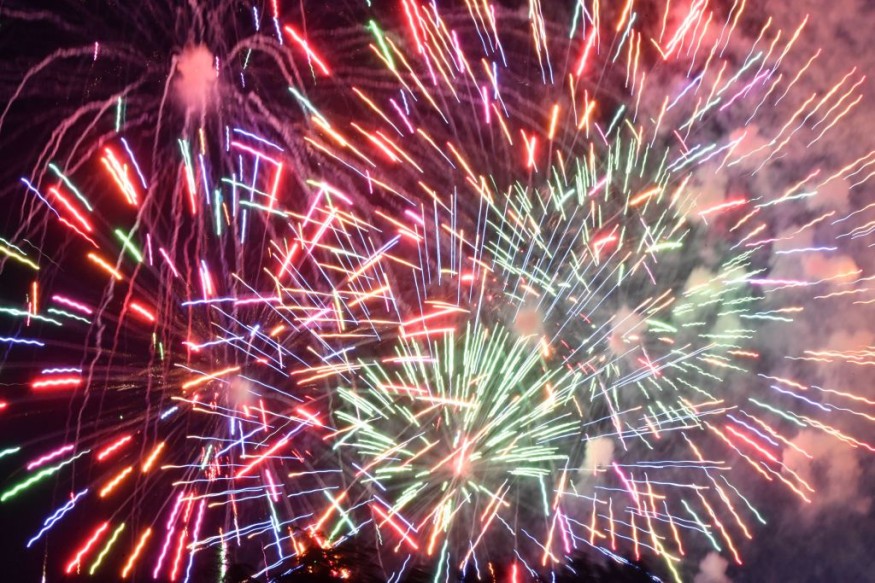Thousands of veterans suffering from post-traumatic stress disorder remain home to avoid the fireworks, while others attend celebrations of the Fourth of July or the nation's Independence Day to enjoy them.
News4Jax reported that celebration fireworks and other loud noises could trigger uncomfortable symptoms in many military veterans. Dreams, flashbacks, trouble sleeping, attention problems, emotional isolation from others, and more are among the symptoms.

Fireworks During 4th of July Celebrations May Cause PTSD
Veterans have post-traumatic stress disorder more frequently than non-veterans due to their exposure to trauma, some of which is trauma connected to battle, according to Mark Heyne, Chief of Psychology at the Boise VA Medical Center.
"Veterans will certainly tell you that certain environmental cues are what are referred to as triggers for some of their post-traumatic stress symptoms," Heyne told KTVB.
The CEO of clinical-stage biopharmaceutical startup Alto Neuroscience and psychiatrist Amit Etkin, a former Stanford University professor, also indicated in an AARP report that some veterans may associate the sound of fireworks with violence.
Sensory recollections, such as noises, scents, or even gut emotions, may serve as triggers for PTSD sufferers and bring on symptoms at a certain time. Since they may believe they are reliving a horrible occurrence, some military personnel trying to celebrate the nation's freedom may experience intense terror when the fireworks go off.
Problems may extend beyond the fireworks. Patients with PTSD could experience increased anxiety before an "anniversary event," as described by Etkin.
A veteran may feel uneasy about Independence Day because of the expectation of large crowds and boisterous festivities. As a result, PTSD sufferers may deepen their isolation to avoid being placed in a situation that is out of their control and likely to cause anxiety.
Etkin mentioned in the same AARP report that a common misperception regarding PTSD is that it invariably entails flashbacks, in which a veteran feels as though he is returning to the moment or location of the trauma and acts as if it is happening rather than flashbacks. Memories are much more likely to cause anxiety, melancholy, a bad mood, or a desire to avoid.
The prevalence of PTSD varies among veterans. Because of this, they must recognize their unique triggers and know how to handle them before any situation that might potentially cause panic. A crucial step in the coping process, according to Etkin, is working with a medical professional like a therapist or psychiatrist.
How to Help Yourself, Others Find At Ease
People suffer from PTSD due to a traumatic or frightening experience. These include military conflict, natural catastrophes, and other events. The individual may experience these symptoms on their own or as a result of anything that makes them remember their traumatic events.
The Centers for Disease Control and Prevention mentioned that revisiting trauma can cause flashbacks, nightmares, and bodily reactions like uncontrolled shaking and heart palpitations.
Here are three strategies to lessen PTSD symptoms throughout the holiday season if you or someone you care about suffers from it.
If your neighbors intend to light off fireworks, ask them to let you know.
Being prepared for the loudness might prevent you from being taken by surprise, Peace Health wrote. If talking to your neighbors about it makes you uncomfortable, ask a loved one or trusted friend to check with them. You might let people know that you have anxiety or PTSD and that being around fireworks can be challenging for you.
They can enjoy the holiday as they choose, but just let them know that it would be helpful if you knew when they planned to let off their fireworks. They may even decide to skip the fireworks out of consideration for others.
Deep, slow breathing
A vital coping technique for treating PTSD is breathing exercises. Craig Bryan, PsyD, a clinical psychologist, told Everyday Health A person's survival system activates when they are terrified.
According to Bryan, taking slow, deep breaths causes the body to physically communicate to the brain that it is safe to relax and to stop the survival reaction. If you constantly use this method when feeling safe, it will function best in a crisis.
Manage your triggers
You can still reduce your exposure even if you want to see fireworks. If you believe it will help you feel less anxious, look for a location where you can see the airbursts, but they aren't nearly as close or noisy, advises Popular Science. Or try to reduce the triggering factors and boost your coping mechanisms by closing windows and doors, donning noise-canceling headphones, or using earplugs.
Check out more news and information on Medicine and Health in Science Times.











